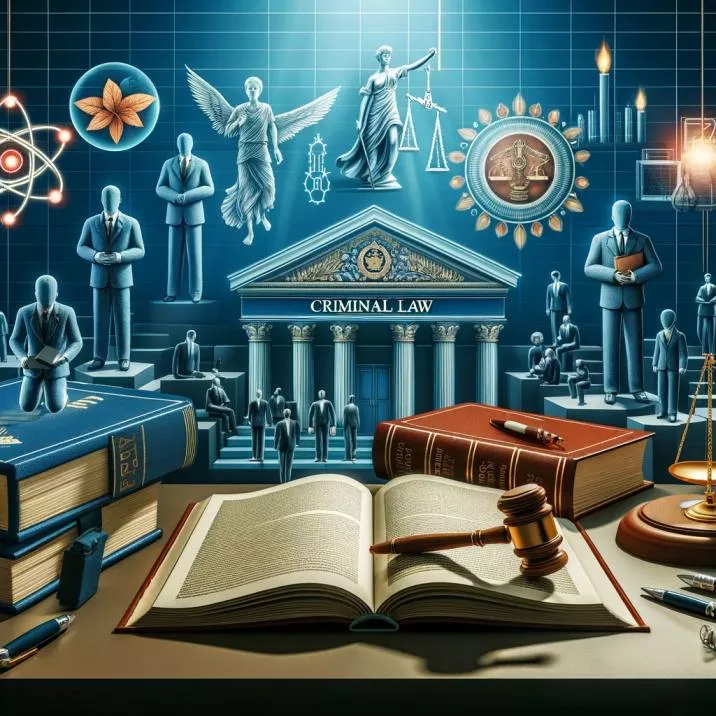In this article we have discussed the Strategies For Authenticating And Presenting Mobile Call Recording, Sms, Email, And Cctv Footage Evidence In Court. In the era of digital communication, mobile call recordings, SMS, emails, and CCTV footage have become vital pieces of evidence in courtrooms across India. However, the admissibility of such digital evidence is contingent upon strict adherence to authentication and presentation protocols as mandated by Indian law. This article delves into the strategies for effectively authenticating and presenting these forms of digital evidence in court, ensuring their acceptance and impact on legal proceedings.
Strategies For Authenticating And Presenting Mobile Call Recording, SMS, Email, And CCTV Footage Evidence In Court Under Indian Law
The Indian Evidence Act, 1872
The Indian Evidence Act of 1872 is the cornerstone for the admissibility of evidence in Indian courts. Sections 65A and 65B outline the specific provisions for electronic records, establishing the groundwork for admitting digital evidence like call recordings, SMS, emails, and CCTV footage.
Information Technology Act, 2000
The Information Technology Act of 2000 further supplements the legal framework, especially concerning the authenticity and integrity of electronic records. It provides guidelines for secure electronic records and digital signatures, ensuring the credibility of digital evidence presented in court.
Authenticating Digital Evidence
Mobile Call Recordings and SMS
Step 1: Ensuring Legality of Recording
For mobile call recordings to be admissible, they must be obtained legally. The Indian Telegraph Act, 1885, read with relevant Supreme Court judgments, mandates that any recording used as evidence must not violate privacy rights, unless it falls under exceptions provided by law.
Step 2: Certifying Under Section 65B
A certificate under Section 65B of the Indian Evidence Act is required to authenticate electronic records. This certificate must detail the manner of obtaining the electronic record, affirm the integrity of the recording process, and be signed by a responsible official.
Emails
Step 1: Verifying Sender and Recipient
The authenticity of emails can be established by demonstrating the ownership of email accounts by the sender and recipient, through IP address logs and metadata analysis.
Step 2: Digital Signatures
Under the IT Act, emails verified by a digital signature are deemed to be valid electronic records, provided they adhere to prescribed procedures.
CCTV Footage
Step 1: Continuous Recording
It must be shown that the CCTV system was operational and recording continuously at the relevant times, without any tampering or interruptions.
Step 2: Extraction and Certification
The process of extracting CCTV footage should be documented and certified under Section 65B, ensuring the footage remains unaltered from its original form.
Presenting Digital Evidence in Court
Proper Documentation and Certification
Ensuring all digital evidence is accompanied by the requisite documentation and certifications under Sections 65A and 65B of the Indian Evidence Act is crucial for admissibility.
Expert Testimony
In complex cases, expert testimony may be necessary to explain the technology used in obtaining the digital evidence, its reliability, and its relevance to the case at hand.
Chain of Custody
Maintaining and presenting a clear chain of custody for digital evidence is essential to prove its integrity and authenticity. This includes detailed records of how the evidence was collected, stored, and transferred.
Conclusion
The admissibility of digital evidence like mobile call recordings, SMS, emails, and CCTV footage in Indian courts hinges on strict compliance with legal requirements for authentication and presentation. By adhering to the guidelines provided by the Indian Evidence Act and the IT Act, parties can ensure that their digital evidence stands up to scrutiny and serves its intended purpose in legal proceedings
FAQs on Authenticating and Presenting Mobile Call Recording, SMS, Email, and CCTV Footage Evidence in Court under Indian Law
- What is digital evidence?
Digital evidence refers to information or data stored or transmitted in digital form that a party to a court case may use at trial. - Is digital evidence like SMS and emails admissible in Indian courts?
Yes, digital evidence, including SMS and emails, is admissible in Indian courts under the provisions of the Indian Evidence Act, 1872, and the Information Technology Act, 2000. - What is Section 65B of the Indian Evidence Act?
Section 65B deals with the admissibility of electronic records. It requires a certificate stating the electronic record is a genuine reproduction of the original. - How can I authenticate a mobile call recording for legal proceedings?
You can authenticate a mobile call recording by providing a certificate under Section 65B of the Indian Evidence Act, detailing the process of recording and ensuring its integrity. - Can CCTV footage be used as evidence in court?
Yes, CCTV footage can be used as evidence if it is authenticated properly and complies with Section 65B requirements. - What is the importance of a Section 65B certificate for digital evidence?
A Section 65B certificate is crucial for establishing the authenticity of electronic records, making them admissible as evidence in court. - How do I ensure the legality of a mobile call recording?
Ensure the recording does not violate privacy laws and is obtained legally, considering the Indian Telegraph Act and relevant Supreme Court judgments. - What constitutes a breach of privacy in obtaining call recordings?
Illegally intercepting or recording a call without consent or lawful authorization constitutes a breach of privacy under Indian law. - Can emails be presented in court without a digital signature?
Emails can be presented, but those with a digital signature under the IT Act have stronger authenticity and are readily accepted as evidence. - How can I prove the authenticity of an SMS in court?
The authenticity can be established through the service provider’s records, showing the message’s origin, destination, and timestamp. - Is expert testimony required for presenting digital evidence?
Expert testimony may be necessary to explain the technical aspects and authenticity of digital evidence in complex cases. - What is the chain of custody in the context of digital evidence?
The chain of custody refers to the documentation of how digital evidence was collected, stored, transferred, and preserved without tampering. - Can WhatsApp messages be used as evidence in court?
Yes, WhatsApp messages can be used as evidence if authenticated following Section 65B of the Indian Evidence Act. - Are screenshots of SMS or emails valid evidence?
Screenshots can be used as evidence if they are authenticated properly and accompanied by a Section 65B certificate. - What happens if digital evidence is tampered with?
Tampered evidence can be challenged and possibly excluded from proceedings, emphasizing the importance of maintaining its integrity. - How is email authenticity verified for court purposes?
Email authenticity can be verified through metadata, digital signatures, and corroborating evidence that links the email to its purported sender. - What role does metadata play in authenticating digital evidence?
Metadata provides crucial information like timestamps and sender/receiver details, aiding in the authentication process. - Can deleted digital evidence be recovered and used in court?
Deleted evidence can often be recovered by forensic experts and used if it’s authenticated and complies with legal standards. - What is the role of forensic experts in presenting digital evidence?
Forensic experts can recover, analyze, and authenticate digital evidence, and provide expert testimony on its validity. - How do privacy laws affect the use of digital evidence in court?
Privacy laws limit how certain digital evidence is obtained and used, requiring compliance with legal provisions for admissibility. - Can a person refuse to provide passwords for encrypted digital evidence?
Courts can order individuals to provide passwords if necessary for accessing relevant evidence, balancing legal requirements and privacy rights. - Is there a time limit for presenting digital evidence in court?
There is no specific time limit, but evidence should be presented promptly to avoid questions of integrity and relevance. - How do I obtain a Section 65B certificate?
A Section 65B certificate is obtained from a person occupying a responsible official position in relation to the operation of the relevant device or the management of relevant activities. - Can personal emails be used as evidence in employment disputes?
Personal emails can be used if they are relevant to the case, properly authenticated, and do not violate privacy expectations. - What is the difference between primary and secondary electronic evidence?
Primary electronic evidence is the original digital document or file, while secondary evidence includes copies or reproductions. - Are there any restrictions on the type of digital evidence that can be presented in court?
The main restrictions relate to the authenticity, relevance, and acquisition of the evidence, not its type. - How does the Information Technology Act, 2000 impact digital evidence?
The IT Act provides the legal framework for electronic transactions and digital signatures, strengthening the legal standing of digital evidence. - Can digital evidence be challenged in court?
Yes, the authenticity, relevance, or integrity of digital evidence can be challenged by opposing parties. - What constitutes a violation of the Information Technology Act in the context of digital evidence?
Unauthorized access, alteration, deletion, or theft of digital information can constitute a violation. -
How is the integrity of digital evidence preserved?
Integrity is preserved through secure storage, controlled access, and maintaining a detailed chain of custody.















